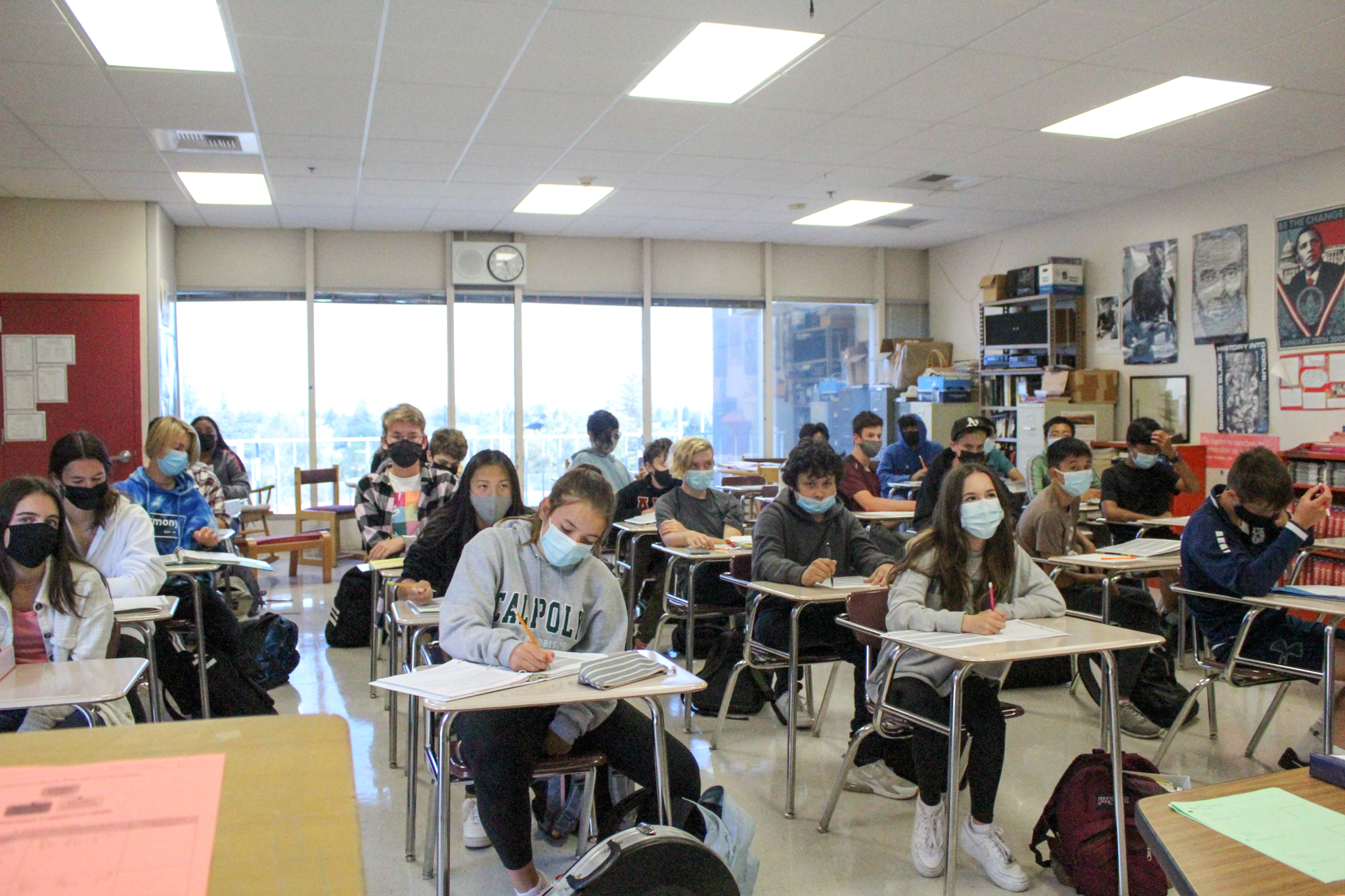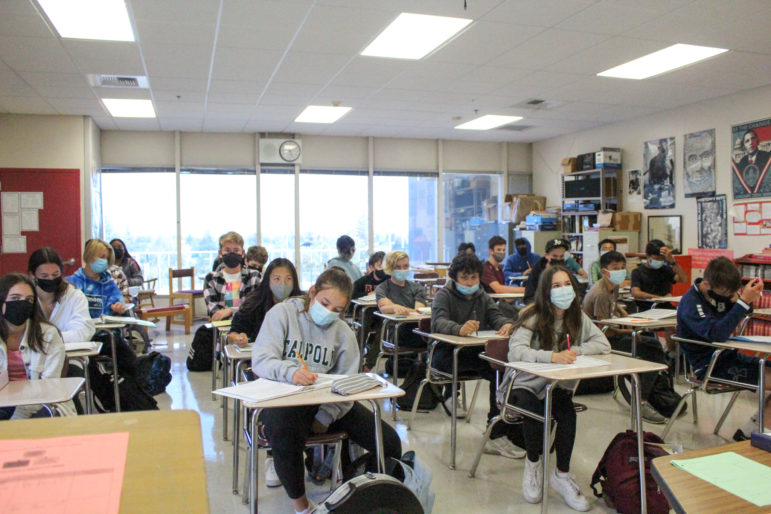
A year ago, Ethnic Studies became a graduation requirement for freshmen across all schools in the San Mateo Union High School District. After a rough start due to the pandemic, the Ethnic Studies teachers are ready to transition back to in-person learning.
“Online, it was a challenge because it was the first year we were teaching it and we had no idea what to expect,” said Ethnic Studies teacher Jerrica Keane. “[We] initially had planned for in-person [learning] … so we had to completely change things in a lot of ways.”
Now that students are back in person again, the teachers are excited to give students the real, hands-on and collaborative experience that they had originally planned for the Ethnic Studies.
“This is our first chance to teach it on campus with kids, live,” said Ethnic Studies teacher Steve Henderson. “It’s been really positive. The kids are getting a chance to gain some additional perspective and so far, so good.”
Ethnic Studies is the interdisciplinary study of the histories, cultures, experiences, traditions and issues of the historically overlooked and marginalized racial-ethnic groups in the U.S. At Aragon, the units covered in the semester-long course include Identity, Race and Ethnicity, Gender and Sexuality and Transformation and Change. The curriculum ends with students creating a project that showcases their improved understanding and growth.
“I want students to … see themselves in the chain of human history, and understand that they matter”
Compared to conventional social science classes, Ethnic Studies focuses on the stories and experiences of those who were left out of the master narrative: a dominant and deeply embedded social anecdote which mutes and erases the role of other minorities, and is perceived from only one point of view. Ethnic Studies aims to broaden the perspectives of younger generations and show them various histories and cultures, which are just as essential as the “master narrative.”
“What we teach in ethnic studies [is] from the human perspective,” Keane said. “It’s about humanity.”
After taking the class last year, sophomore Tara Sardana was inspired to create Ethnic Studies Club to provide students who hadn’t had the opportunity to take the course a chance to learn about and experience Ethnic Studies.
“To me, [Ethnic Studies has been] a blessing,” Sardana said. “I think that everyone should be able to take the class. [Ethnic Studies] is really important to me because it [focuses] my life in the way I want it to go.”
One of Sardana’s favorite topics was the identity unit.
“As … an Indian [who] grew up in America, … I was adapting to the American culture and not my own,” Sardana said. “When I finally took this class it made me realize how blind I was to my culture and why I should be … more in touch with it and not be embarrassed or ashamed [by] it.”
Henderson believes that making Ethnic Studies a graduation requirement emphasizes its fundamental importance and gives students a basic understanding of the topics taught as they affect people’s everyday lives.
Sophomore Jeremy Hsieh feels that embracing the difficult conversations that come with the class makes students more accepting of each others’ differences.
“I think [students] shouldn’t be afraid to talk about these sensitive topics, especially race and gender and sexuality and ethnicity,” Hsieh said. “[They] should be open to the course … because the course is just trying to help us.”

There has been controversy surrounding critical race theory and how it may connect to Ethnic Studies classes. Critical race theory describes a set of ideas regarding how the intersectionality of race and gender commingle, which can either limit or benefit certain racial and ethnic groups.
“Politicians … are mistaking some of the topics that we are talking about in the course … and saying that teachers should not be allowed to teach anything that has to do with the past of our country that doesn’t put America in a favorable light,” Henderson said.
Keane believes it is people’s differences that make them so interesting. She is hopeful that people will love each others’ differences and change Aragon’s campus culture for the better.
“I just want students to be able to see themselves in the chain of human history, and understand that they matter,” Henderson said.
The Ethnic Studies teachers unanimously agree the course strives to show students the importance of demonstrating humanity and being upstanders in society, in hopes of creating a more unified generation.




